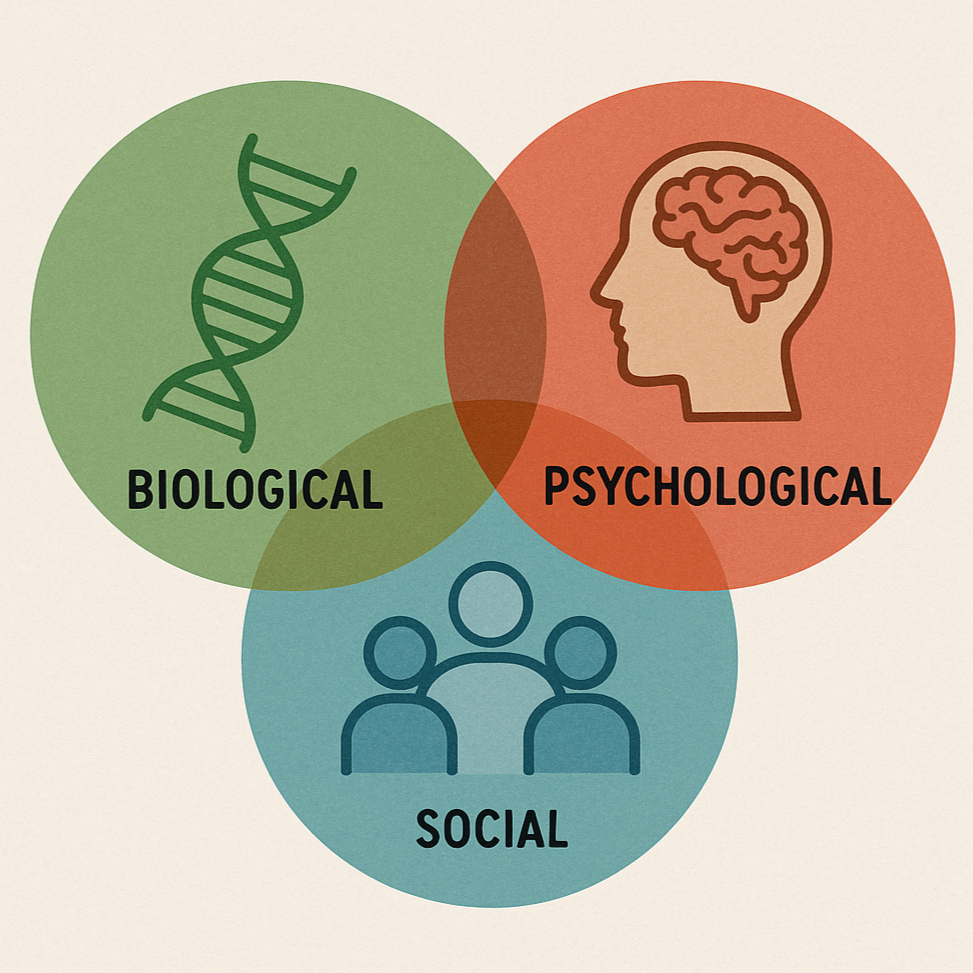Understanding Chronic Pain
Chronic pain can be a persistent and challenging condition that affects your daily life, mood, and overall well-being. Traditional treatments often focus on symptom reduction, but evidence shows that integrating other approaches, such as mindfulness and Acceptance & Commitment Therapy (ACT) can empower individuals to live more fully despite pain.
The Bio-Psycho-Social Model
Our approach incorporates the bio-psycho-social model, recognizing that chronic pain is influenced by biological, psychological, and social factors. Biological aspects include the nervous system and physical health, psychological factors involve thoughts, emotions, and coping strategies, and social influences include relationships, work, and environment.
Multiple factors interact to amplify
Chronic Pain
What is Mindfulness?
Mindfulness is the practice of intentionally paying attention to the present moment without judgment. By cultivating awareness of thoughts, emotions, and bodily sensations, individuals can reduce the impact of pain on their mental and emotional well-being.
What is ACT?
Acceptance & Commitment Therapy (ACT) combines mindfulness with behavioral strategies to help you identify personal values and take meaningful action, even in the presence of pain. ACT emphasizes accepting pain and discomfort rather than fighting it, while focusing on living a valued life.
You can learn to observe pain without being overwhelmed. You can educe pain-related avoidance behaviors. You can engage in activities that enhance your quality of life. Our holistic approach fosters resilience, emotional balance, and greater self-compassion.
